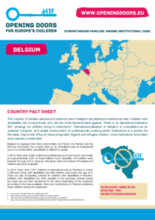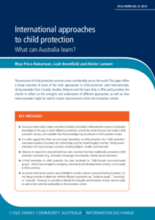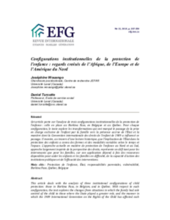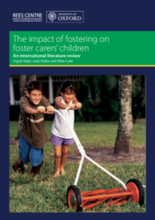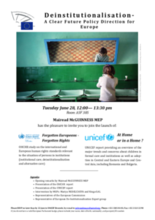Displaying 51 - 58 of 58
Lumos and the Directorate-General for International Cooperation and Development of the European Commission (DG DEVCO) will host a conference on Supporting families globally: Ending the institutionalisation of children. The conference will take place 20 January 2016 from 12:30 PM to 2:00 PM CET. It will be held at External Cooperation InfoPoint, Rue de la Loi 43-45, Bruxelles, Belgium.
This Country Fact Sheet from Belgium contains short facts on care and institutionalization in Belgium.
This paper offers a broad overview of some of the main approaches to child protection used internationally. Using examples from Canada, Sweden, Belgium and the Gaza Strip, it offers policy-makers the chance to reflect on the strengths and weaknesses of different approaches, as well as how these examples might be used to inspire improvements within the Australian context.
Cet article porte sur l’analyse de trois configurations institutionnelles de la protection de l’enfance : celle en place au Burkina Faso, en Belgique et au Québec. Pour chaque configuration, le texte explore les transformations qui ont marqué le passage de la prise en charge exclusive de l’enfant par la famille vers la présence accrue de l’État et la manière dont la Convention internationale des droits de l’enfant de 1989 a influencé ce passage.
This literature review by the Rees Centre for Research in Fostering and Education at the University of Oxford was undertaken to identify the ways in which carers’ children might be more effectively prepared and supported when their families are fostering.
A comparative analysis of child welfare systems in 10 countries identifies three broad functional orientations – child protection, family service and child development.
Event to launch two new reports on importance of deinstitutionalization for all persons
First published in 1999, this work draws together a multi-national collection of papers, and aims to stimulate the development of policy and practice in this often neglected area.

